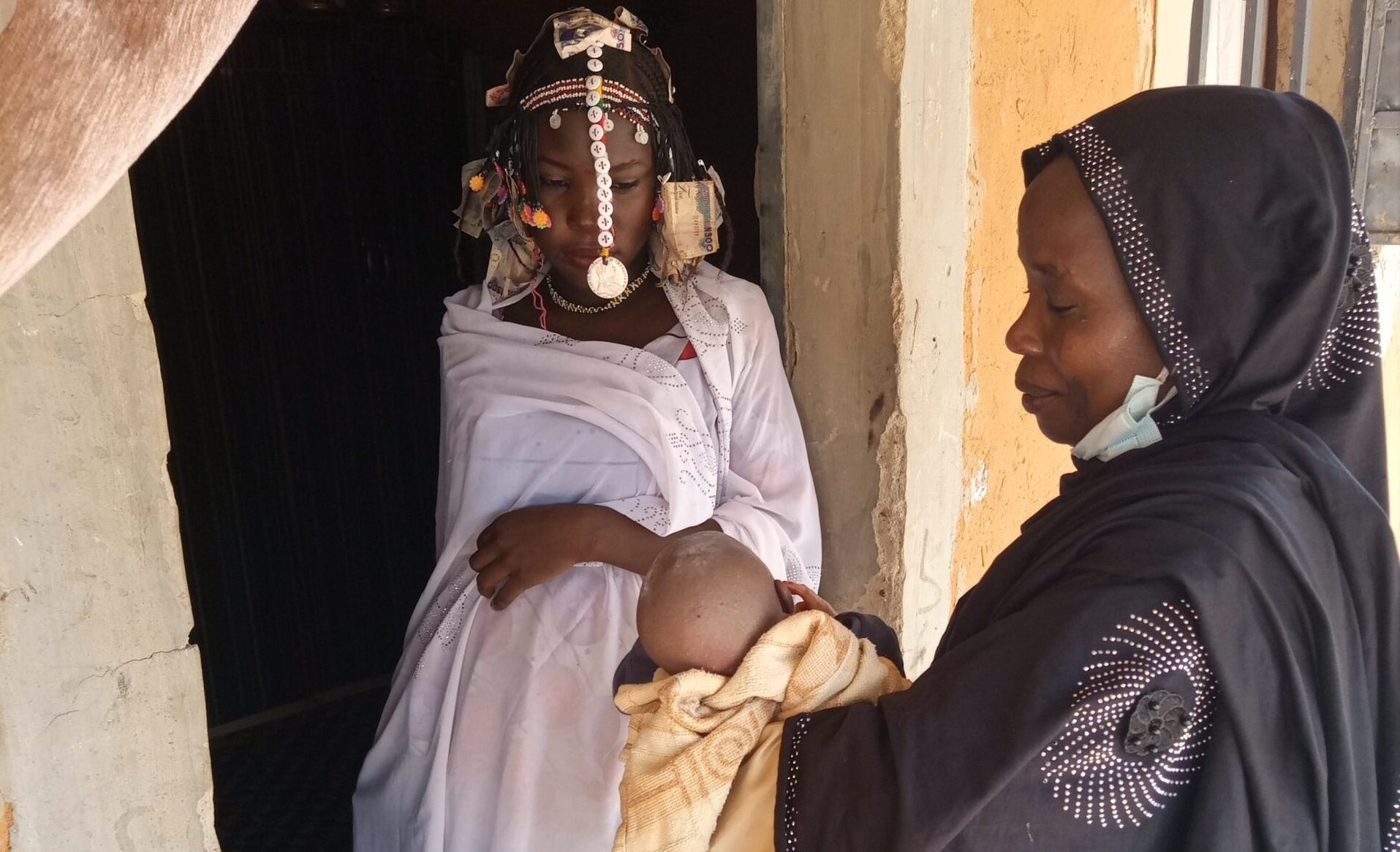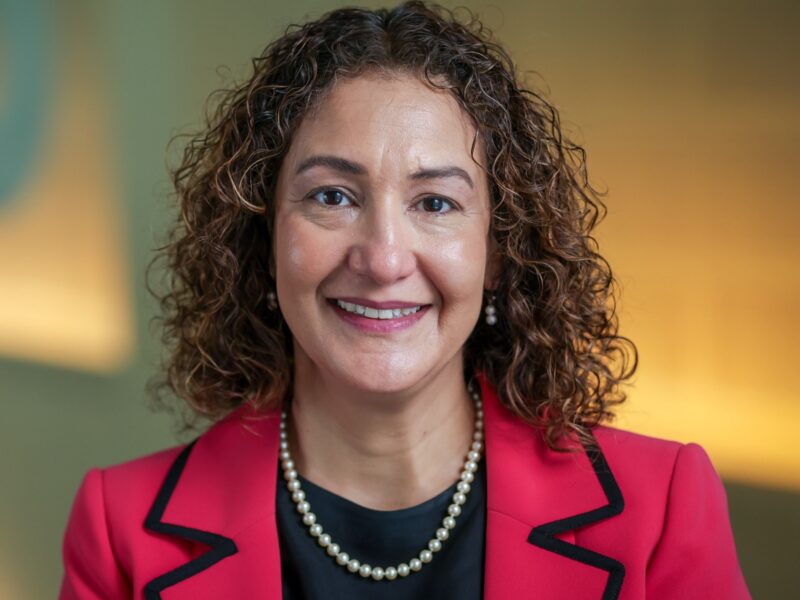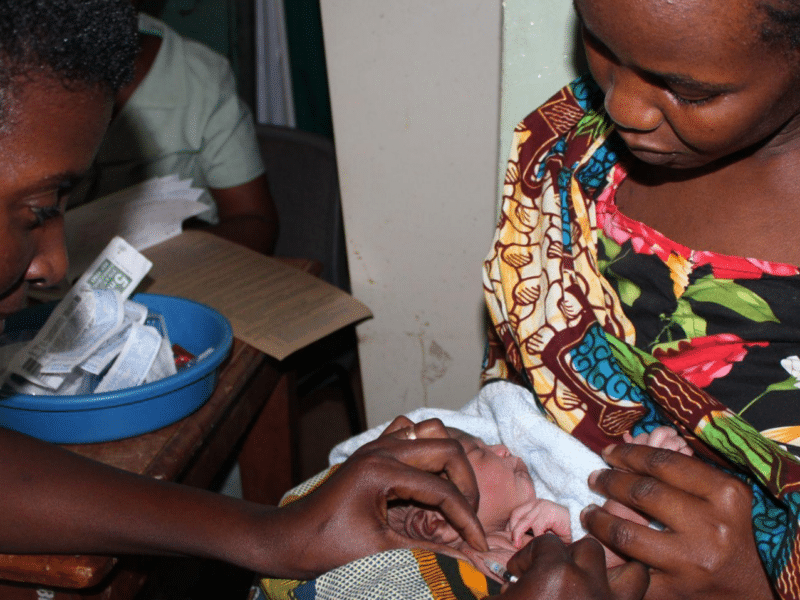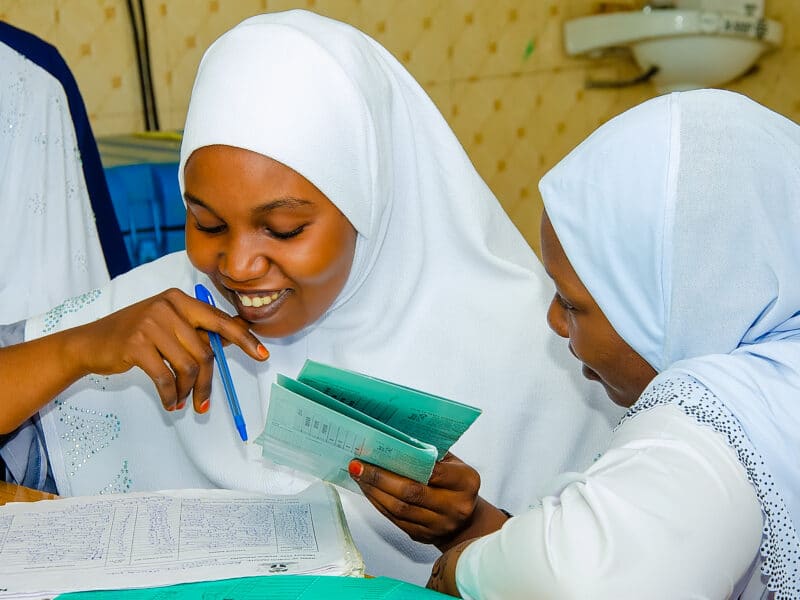In Nigeria’s Bauchi state, pregnant women in rural wards have difficulty accessing health care, be it pre-natal visits or delivering their babies at a medical facility. The terrain is challenging, making it difficult to make the trek to the hospital, while from May to October flooding often blocks the way. Most importantly, they often can’t afford to pay for needed transportation.
These barriers can become life-threatening when a pregnant woman cannot access care swiftly, and when needed.
The Johns Hopkins Center for Communication Programs-led Breakthrough ACTION-Nigeria project has been working with local governments known as ward development committees (WDCs) since 2019 to solve the problem of making transportation available to pregnant women and young children for routine appointments and to other community members with emergencies.
In five Nigerian states, WDCs have collaborated with the National Union of Road Transport Workers and the Amalgamated Commercial Motorcycle Riders Association of Nigeria to provide a community-based emergency transport program. While the WDCs provide fuel, drivers of the two unions and other vehicle owners within the community volunteer their time, for free, to create a service available and accessible 24 hours a day, seven days a week. Drivers say service to the community and community recognition are key motivating factors to do the work.
“Many of the volunteer drivers who typically drive taxis, motorcycles, tricycles or ambulances for a living, tell us they do this because they want to help others,” says Ummulkhairi Gambo, who works on the program. “Many have numerous interesting stories to tell about how they helped save the lives of mothers and babies, and how they supported the families of the pregnant women through a difficult time.”
Across the five states — Bauchi, Kebbi, Sokoto, FCT and Ebonyi — lists with names and numbers of drivers are posted at health centers across different communities to increase quick access in the case of emergencies. As a result, the WDCs have transported more than 23,000 women for pre-natal care, nearly 16,000 women for facility delivery and more than 16,000 children under five for health services.
Breakthrough ACTION-Nigeria, including one of its partners, Save the Children, has trained 289 WDCs and has a pool of more than 100 drivers to provide transportation during health emergencies. Hajiya Baballiya is the only one who is a woman. This allows her unique access to households and other community events where only women can participate, where she can spread awareness of the program. Often, women feel less comfortable with male drivers.
Her unique role underscores her commitment to improving the health outcomes of her community and highlights the crucial role that women play in driving positive change.
“Most women here don’t go for [pre-natal care] and always deliver at home,” says Baballiya “Afterwards, they are usually rushed to the hospital for complications, and sometimes you lose either the mother, the child or both. Now being the eldest daughter to the village head, I offered my vehicle any time of the day or night to transport these women at the onset of labor to save the lives of both mother and child.”
From January to November 2022, Baballiya alone has transported 211 people to the Raga and Federal Medical Centre in Bauchi state for free.
Saratu is one of them. A food vendor in Raga, Saratu became pregnant when she was 18. Unmarried and ashamed, she has spent a lot of time at home. One of the things she was missing out on: pre-natal care. After they met, Baballiya began giving Saratu rides to the health facility to ensure she gets the essential services she needs.
“It was Hajiya Baballiya who has been assisting us in managing the pregnancy,” said Uwani, Saratu’s mother. “Every few weeks, she comes with her car and takes us to the hospital for [pre-natal] services and other ailments.”
In the meantime, Breakthrough ACTION-Nigeria is helping WDCs recruit more female drivers, an essential part of eliminating barriers to care at all stages of pregnancy. Breakthrough ACTION soon plans to train drivers in an additional 209 wards.
“This program literally saves lives by transporting pregnant woman and others to medical facilities,” says Aliyu Dan’asabe, a senior community capacity officer for Breakthrough ACTION-Nigeria. “We want to ensure it helps people in the community for years to come.”
Breakthrough ACTION-Nigeria’s Ummulkhairi Gambo, Aliyu Dan’asabe, Nura Faggo, Edoziem Valentine, and Amina Bala contributed to this report.





